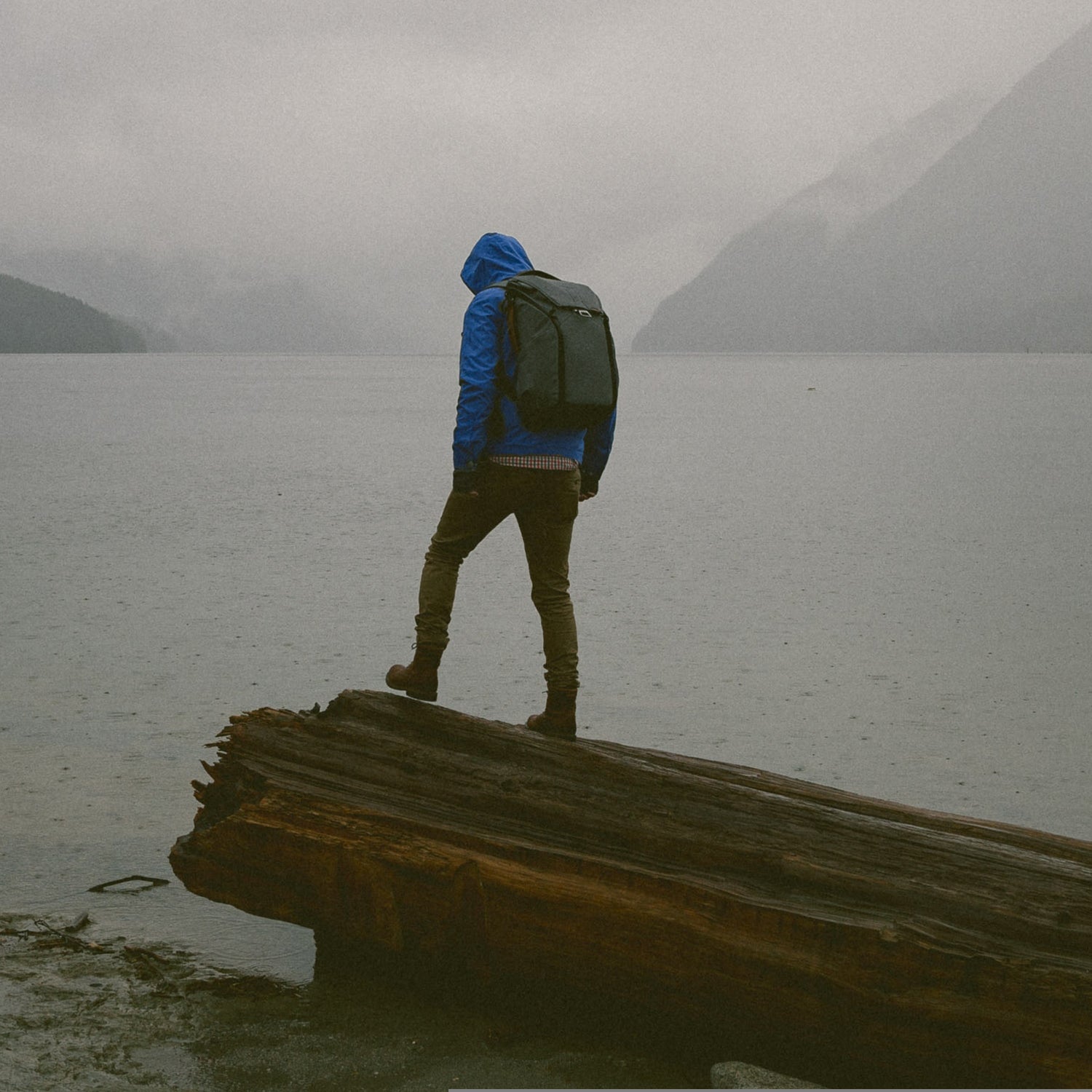This month, following an extraordinarily rough stretch of current events—hurricanes, mass shootings, wildfires, , global instability—a close friend, normally a happy and upbeat guy, called to tell me he was down, stuck in a rut. I told him I felt the same and that I doubted we were alone. It seems like lots of people are having similar calls and feeling a similar way. The question is what to do about it.
During trying times, self-care can seem self-indulgent. Amid so much tragedy, the thought of going for a hike or run—and, god forbid, enjoying it—feels a bit off, perhaps even wrong. And yet constantly being down doesn’t do anyone any good. “When you’re overwhelmed with sadness or angst, you’re unlikely to take productive action to make the situation better,” says , a clinical psychologist who specializes in treating depression in athletes. “And then, of course, being depressed or dysfunctional in and of itself isn’t a desirable state. Being in a dark place sucks. If you don’t do something to disrupt the cycle, you end up feeling helpless.”
This doesn’t mean you should put your head in the sand and completely ignore all that is wrong with the world. But it doesn’t mean you need to feel depressed. If anything, when you take care of your own mental health, you and are better able to take care of others and your community. Even if it feels like you need to force yourself to follow the advice below—and it might—you’ll almost always feel better for doing so.
Move Your Body
There is a large and growing body of evidence that exercise can alleviate or altogether eliminate the symptoms of and . “For most people, exercise is as powerful as prescription medications,” says John Ratey, associate clinical professor of psychiatry at Harvard Medical School and author of . Though all movement is beneficial, Ratey says aerobic exercise—sports like running, hiking, cycling, swimming, or even just a fast-paced walk—has the most positive effect on mood. “If people do at least 30 minutes of aerobic physical activity at about 70 to 75 percent of their maximum effort, four to five times per week,” says Ratey, they stand of effectively countering even more moderate bouts of depression.
Change Your Environment
Sometimes getting unstuck from a bad mental space can be as simple as changing your physical space. “It’s pretty amazing how getting out the door can completely shift your state of mind, especially if you’re feeling sad or apathetic,” says Keim. If you find yourself lethargically sinking into the couch or in a funk at the office, force yourself to go to a coffee shop, run some errands, or head out for a walk.
Get ���ϳԹ���
Our species didn’t evolve to live in fast-paced, “always on” urban environments. And we certainly didn’t evolve to watch overly dramatic and fearmongering cable news. According to the , made popular by Harvard entomologist E.O. Wilson, we evolved to be in nature. Researchers speculate that when we’re in nature, our fight-or-flight stress response subsides in favor of a calmer state. in Japan have found that “forest walks,” or leisurely strolls through green spaces, reduce stress hormones, diminish nervous system activity, and decrease blood pressure and heart rate. Other from Stanford University found that nature walks are far more effective than urban walks at reducing the sensations of anxiety—and neural activity in the part of the brain associated with it. Though there is no specific recommended dose, from Finland suggests you should aim to spend at least five hours in nature every month. For a more acute bout of sadness or angst, try taking a day hike or spending a night camping.
Interact with Other Humans—In Real Life
“Community is key,” says Keim. Though the last thing you may want to do when you’re feeling crappy is hang out with others, it’s almost always one of the best things you can do. You may be connected to tons of people online, . Research in the journal Physiology and Behavior found that interacting with friends in a relaxed environment lowers the stress hormone cortisol. Keim believes that social connection also helps shift your nervous system into a more relaxed state.
Log Off
Social media can be a great place to meet people and exchange ideas, but it can also be an echo chamber of negativity. If you feel like your social feed (or the internet more broadly) is a physical manifestation of rumination, the best thing you can do is take a break. “Go on an internet fast,” advises Keim. “Give yourself 24 to 48 hours where you don’t engage in any of it, and when you come back, be more mindful and intentional about who you follow and what sites you traffic.”
Seek Professional Help
There’s a big difference between transitory and mild depression or angst and the more consistent, all-consuming variety. If self-treatment doesn’t work, don’t just live with it. Get help. (And if you’re thinking about hurting yourself, please call the at 1-800-273-8255, or .) As someone who has experienced debilitating general anxiety and benefited greatly from professional help, I think the fact that mental health is still stigmatized is utter bullshit. (I literally and still have experienced uncontrollable and unexplainable anxiety.) If you’re struggling to the point where you don’t feel at all like yourself, and it’s affecting your day-to-day life, and you’re not getting better, one of the strongest things you can do is ask for help. You wouldn’t think twice about going to the doctor for a broken leg. Treat your mind the same way.
Brad Stulberg () writes ���ϳԹ���’s Science of Performance column and is author of the new book .


